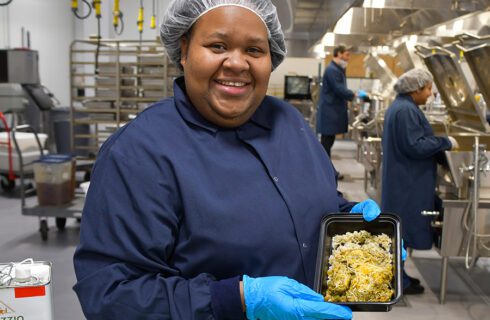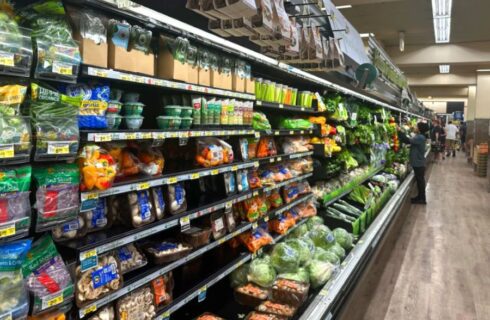The Greater Chicago Food Depository is deeply disappointed that the debt ceiling agreement reached over the weekend includes harmful restrictions to the Supplemental Nutrition Assistance Program (SNAP).
Specifically, we are disheartened by the expansion of time limits for able-bodied adults without dependents (ABAWD) who do not meet certain extra work requirements, which will increase food insecurity and drive demand on a strained charitable food system. At a time when millions of Americans are trying to get back on their feet, these measures take away critical benefits from our neighbors who already endure significant challenges. This is wrong.
The Food Depository’s network of partner food pantries and program sites across Chicago and Cook County is already responding to elevated need. Food insecurity rates are well above pre-pandemic levels and the recent expiration of emergency SNAP allotments has pushed more households to the end of their resources.
Under the proposed debt ceiling agreement, the three-month time limit for receiving SNAP benefits, which currently applies to adults ages 18-49 who do not meet certain extra work requirements, would expand to include individuals up to the age of 55. People often participate in SNAP when they’re between jobs and looking for work. However, in the workforce, 50- to 55-year-olds are already in a very vulnerable position as it is harder for this age group to secure reemployment if they lose their job.
Work requirements also place an additional burden of paperwork and reporting on people who experience significant challenges. If passed into law, up to 1 million adults nationwide, including 54,000 in Illinois alone, will be at risk of losing their benefits.
Critical public assistance programs such as SNAP exist to help people avoid food insecurity and should not create more obstacles for our neighbors experiencing poverty. Reducing the scope of SNAP never belonged in the debt limit negotiations.
We urge Congress to find ways to strengthen SNAP in the Farm Bill so that households trying to make ends meet can continue to put food on the table. SNAP is our nation’s foremost defense against hunger. Charitable organizations cannot do it alone. We need the support of our policymakers to protect SNAP and make it accessible for our neighbors at risk of food insecurity.
Share This Post



